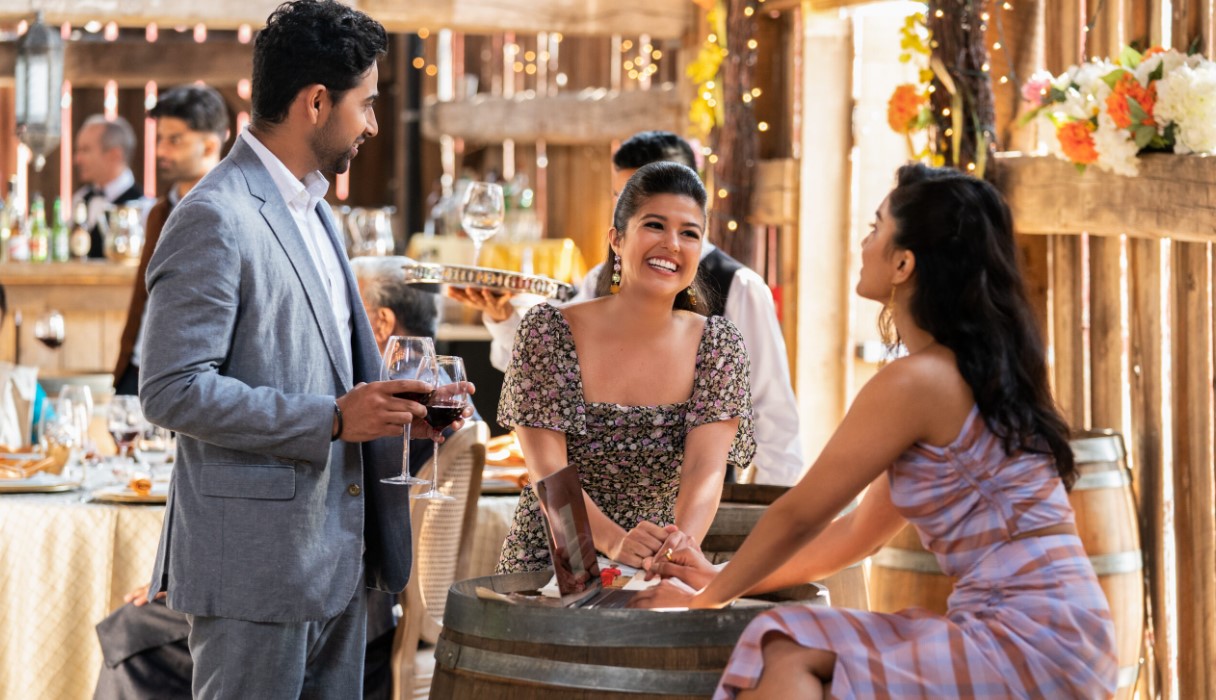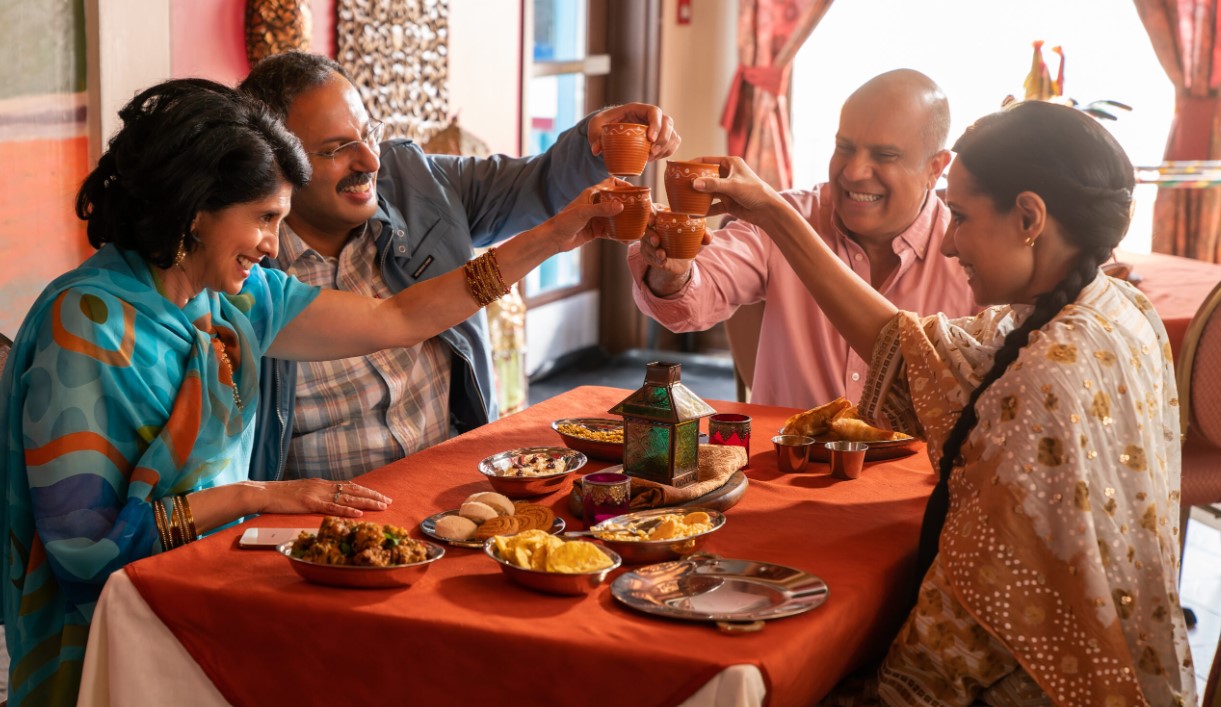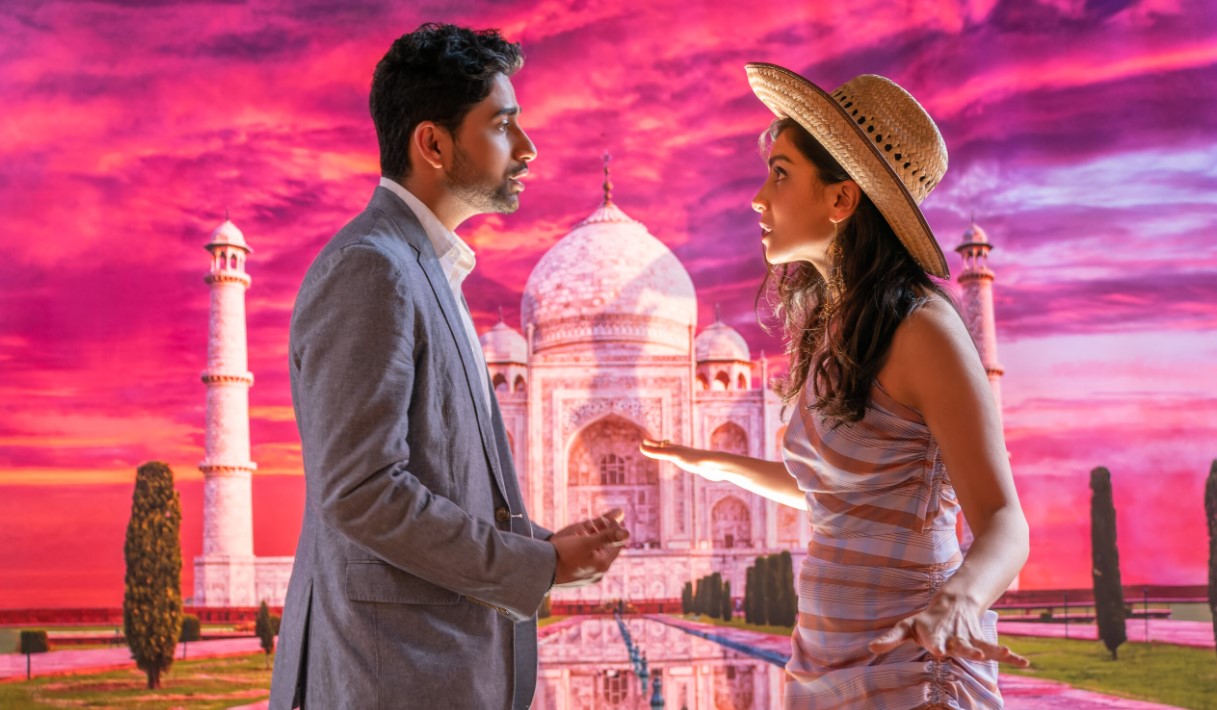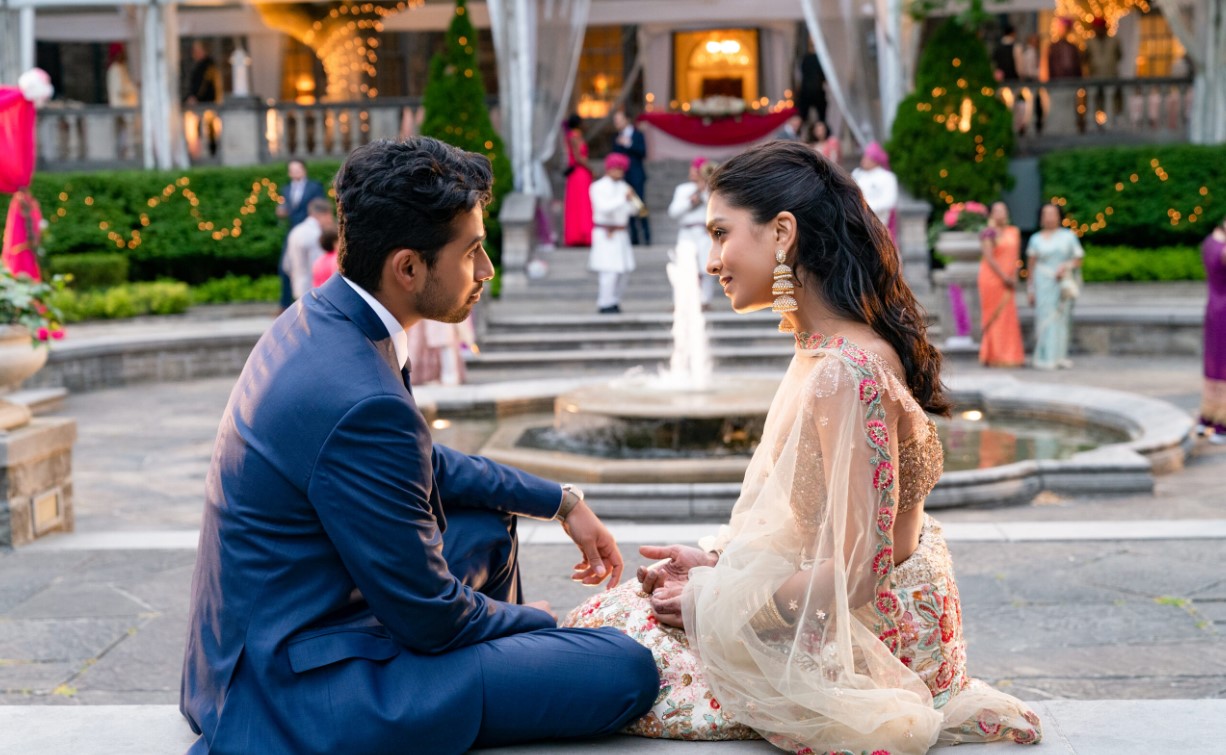There is a scene in the latter half of ‘Wedding Season,’ Netflix’s romantic comedy film directed by Tom Dey (‘Shanghai Noon’) and penned by debutant screenwriter Shiwani Srivastava, that seems to pay homage to the climactic scene in the iconic Bollywood movie, ‘Dilwale Dulhania Le Jayenge,’ No, not the train part, but the interaction that comes before between Amrish Puri’s Chaudhary Baldev Singh and Kajol’s Simran. For the uninitiated —-and spoiler alert for a 1995 film — the scene involves Chaudhary telling his daughter Simran to go and live her life. A teary-eyed but happy Simran then runs across a railway platform and boards an already moving train by grabbing the extended hand of her lover, Raj Malhotra, portrayed by the one and only Shah Rukh Khan. The inherent dryness of prose doesn’t do the scene justice. Imagine it with fireworks going off and your favorite romantic song playing in the background, and you will get the picture. (Or, you can just watch the scene on one of the video-sharing sites, that works too!)

The homage scene of ‘Wedding Season’ may lack the emotionality of the original but has this unique brand of grounded earnestness that fits the scene perfectly and repeats itself throughout the film’s runtime. ‘Wedding Season’ has its share of flaws, and we will get to them later, but what its makers have done really well is to showcase the balance that the Indian Americans (or any immigrant for that matter) maintain between tradition and assimilation. Its two protagonists — Asha Maurya (Pallavi Sharda) and Ravishankar Shah (Suraj Sharma) — are second-generation Indian Americans. They have grown in an amalgamation of cultures, facing the demands to adhere to their tradition at home and in their community and the necessity to assimilate in the world beyond. ‘Wedding Season’ tells us that it’s alright to embrace both. While it’s not the first film to address this, it’s definitely one of the better ones to do it.
After ending her engagement and quitting her high-flying banking job on Wall Street, Asha moved back to New Jersey to reinvent herself. The economics graduate now works for a loan initiative seeking to improve the living conditions of Southeast Asian women. She is professionally happy but has little time for dating. Predictably, her parents, Suneeta (Veena Sood) and Vijay (Rizwan Manji), disagree. They think that Asha’s decision to quit the lucrative bank job was a bad idea, and Suneeta sets up a profile for her daughter on the dating site Dreamy Desi Partner. She believes she has found a perfect match for Asha in Ravi, the youngest Indian to win the National Spelling Bee and an MIT alumnus.

Ravi’s parents, Dinesh (Manoj Sood) and Veena (Sonia Dhillon Tully), are equally persistent. Dinesh even thinks his son is wasting his life by being an international DJ. To make their respective parents happy, Asha and Ravi meet up, and the former comes up with the plan to pretend-date each other and get through the wedding season together. However, soon enough, real emotions invade their fake relationship.
It’s not every day that I see a typical Hollywood romantic comedy with characters that look like me. ‘Wedding Season’ is 10 minutes too long. The editing in it could have been sharper. There are scenes where the camera needlessly lingers, and dialogues go on longer than necessary. The character of Nick (Sean Kleier), the fiancé of Asha’s sister Priya, feels too over-enthusiast about everything Indian. If an Indian-American hadn’t written the script, Nick’s behavior would have appeared as a benign form of racism, if such a thing even exists. But, as an Indian-American is, in fact, the scriptwriter, Nick comes off as merely a caricature, but I am not sure if that is intentional.

Despite its problems and obvious predictability, ‘Wedding Season’ offers a fun and fulfilling ride. Although it is billed as a romantic comedy, it makes a dramatic shift about halfway into its runtime. This change might be surprising but not unwelcome. It brings a certain amount of focus to the narrative, underscoring the main conflict in the film. ‘Wedding Season’ portrays the Indian Americans as a largely homogenous community when that is not the case. The fault lines exist for a multitude of reasons — from religion to native state to culture to language. The makers of ‘Wedding Season’ seem to have consciously limited the scope of their film, and it effectively makes the narrative more comprehensive.
Rating: 3.5/5
Read More: Is Wedding Season Based on a True Story?


You must be logged in to post a comment.